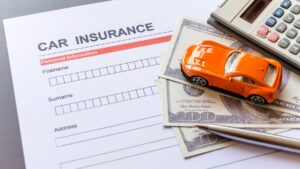Auto insurance can be bewildering. There are so many options and coverages available that it’s easy to become overwhelmed by the details. This is particularly important if you are a first-time car buyer or looking to switch providers. More than just transportation, your vehicle means freedom and independence, but protecting that investment should be simple and usually isn’t.
In this guide, we’ll go over all the different types of car insurance around today. From basic liability coverage to extra peace of mind add-ons, we have got it covered—literally! Let us now delve into what every driver needs to know about securing their wheels on the road ahead.
Types of Coverage
1. Liability Insurance
Liability coverage forms the base of auto insurance policies. It covers you financially in case you cause an accident that results in injuries or damages to others’ property. This type of policy typically consists of two parts; bodily injury liability and property damage liability. While the former pays for medical bills as well as lost wages and pain experienced by the other motorist involved, the latter compensates if your actions hurt somebody else’s vehicle or personal items.
Most states require motorists to carry minimum amounts of liability coverage although higher limits should be considered especially when you own valuable assets like a home. A severe accident may result in significant expenses that may not be fully compensated for under basic policies only. Knowing how much liability coverage is adequate saves you from financial stress later on—it’s more than just compliance though.
2. Collision & Comprehensive Insurance
Collision insurance is meant to cater for any damages made on your vehicle due to an accident whether it is with another vehicle or objects like trees or guardrails. With this kind of policy, regardless of who was at fault during an accident, one can get their automobile repaired or replaced after a collision disaster happens. On the other side, however, comprehensive insurance protects against non-collision-related accidents; think as natural disasters, theft, vandalism, or hitting an animal. This is the kind of insurance cover for those unexpected incidents that damage happens when you least expect it.
Having both types of coverage can offer peace of mind. It protects you from accidents and other unforeseen events in life. Picking the right combination is essential to make sure you are fully safeguarded on the road and beyond.
3. Personal Injury Protection (PIP) Insurance
Personal Injury Protection (PIP) Insurance encompasses expenses associated with medical care for you and people accompanying you after an accident regardless of who was responsible for causing it. This kind of insurance goes beyond regular health insurance policies as it caters to immediate costs related to injuries. In most states PIP is compulsory. Some may include benefits such as hospital bills up to rehabilitation services while some policies even offer compensation for lost wages if one becomes unable to work due to injury.
What sets PIP apart is its focus on prompt assistance during challenging times. Having such protection means that your financial concerns about healthcare can be delayed while recovering from illness or injury: While many regard it as providing extra security, being aware of what your PIP policy entails can define what happens in case of sudden eventualities on the road.
4. Uninsured/Underinsured Motorist Coverage
A driver should see the importance of having underinsured/uninsured motorist coverage. This policy becomes effective when you get involved in an accident with someone who does not have enough insurance coverage. Imagine the stress of being hit by a fellow motorist without insurance and therefore left to handle all the medical bills and repair costs individually. Moreover, this coverage helps protect you from losing money as well as gives you some sense of security while driving your car on the roads. You will always feel comfortable driving because, in case of any uninsured motorist hitting you, there is no chance for huge financial losses.
It’s also important to be aware that various states have different regulations on this issue. Some make it compulsory, whilst others consider it optional. If you are shopping for auto insurance packages, think about incorporating this extra precautionary measure into your payment plan. It can save your life in unforeseen circumstances and also keep you protected during any journey on the road.
Other Optional Coverages
Many people go beyond standard types of policies to explore additional alternatives available to drivers. Such choices may give peace of mind or cater to specific needs better than ordinary ones can provide; e.g., rental car reimbursement is a preference among many consumers today. This kind of protection ensures that one gets another car to move around with if ever his vehicle crashes and therefore stays at the workshop waiting for repairs.
Another possibility is roadside help services delivery company service providers assistance support options support services, assistance roadside assistance provider? Help right next door when something goes wrong such as a flat tire or gas running out is what one should look out for. The other important option here is gap coverage which fills that space between what remains unpaid on the loan for your automobile and its current market worth – this way would save a lot when financing new vehicles, Coverage meant for custom parts together with equipment insures the damages or loss of aftermarket additions like upgraded sound systems and unique rims installed on such auto models. Those who have an obsession with customizing their machines often find it critical to protect these investments.
Conclusion
Although complicated, car insurance is vital for every driver. This means that understanding what sort of coverage is available can help one make appropriate decisions concerning his or her requirements. Whichever option you choose from the liability to comprehensive ones; they all serve different roles. When you are familiar with these selections, your pocket will be significantly impacted and peace of mind while driving will greatly improve.
Life is unpredictable and having enough insurance protects against unexpected events. It’s not about compliance but keeping safe what matters most – yourself and your vehicle. You may want to consult an insurance broker when looking at options like this as they might offer some insight into the process which could be beneficial while making a final decision on which policy would suit best for my way of life and driving behavior. It is important to gather information before deciding so that there are no surprises later down the road.
FAQs
1. What are the minimum requirements for car insurance?
Minimums vary by state, but most require bodily injury and property damage liability coverage.
2. How does collision coverage differ from comprehensive coverage?
Collision covers accidents with other vehicles or objects only, while comprehensive covers theft or natural disasters not caused by collision.
3. Is personal injury protection mandatory?
Depending on the state, PIP may be required by some states whereas others do not mandate it due to differences in state laws governing No-Fault Insurance (PIP).
4. Can I add someone else to my current plan?
Yes! In fact, under most policies, it’s usually okay if you want to put another member of your family or even a friend who drives your vehicle sometimes without problems coming up.
5. What frequency should I renew my vehicle’s insurance?
It is smart for you to review your policy once every year or in case of critical life changes (for example: a new job, moving) that can lead to an alteration in the risk profile and require a different cover.




